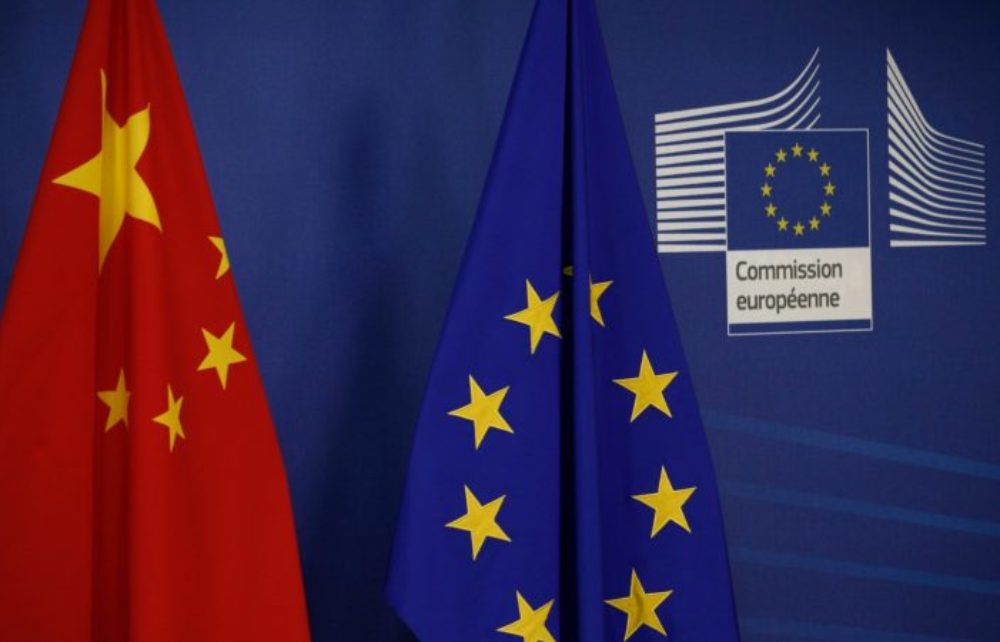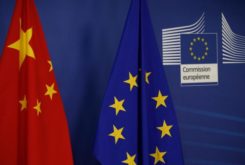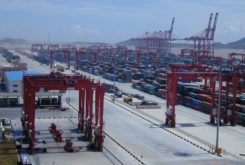China´s barriers to foreign investment are still high, despite recent “limited” improvements in some sectors, according to the European Union Chamber of Commerce in the country.
According to Joerg Wuttke, president of the European Union Chamber of Commerce in China, the latest revisions to the Foreign Investment Negative List (FINL), a table of different industries in which foreign investment is either forbidden or accompanied by conditions for entry, were a “welcomed step in the right direction”, but limited.
In late June, revised FINL removing seven items were from the restricted list, leaving just 33 sectors closed to foreign investors, and by taking “commercial vehicles” off of the list, “China advanced meaningful opening for foreign automakers”, Wuttke writes in an op-ed published on Caixin Global.
“However, most of the other changes are of limited significance: seed development expanded a bit, but only for wheat; pipe network operations for municipal water and waste services is now open, but only after Chinese SOEs built out the entire country; and capital asset management opening comes too late, as foreign banks were allowed in only recently, and thus cannot build the deposits necessary to truly compete here”, he says.
However, he adds, the remaining 33 items are composed of sectors across a broad spectrum of interest, including legal services and a swatch of telecoms services.
A “second gate” for foreign investors is also the Market Access Negative List (MANL), which restricts 130 broadly-defined items, affecting “all market players, not just foreign ones, which serves as a reminder that China’s private companies are also subject to the onerous regulatory framework here”.
Although the vast bulk of items on the MANL are not prohibited, they require various administrative permissions instead and “European business leaders report being twice as likely to face such indirect barriers compared to direct ones”, Wuttke says.
“Foreign banks, for example, were finally able to enter without joint venture requirements as of just a couple of years ago. Ecstatic at finally being allowed in, European banks found a fully saturated market, in which only a few niche opportunities in areas like cross-border services held meaningful potential. Furthermore, the requirements for obtaining an operating license remain out of international norms by some considerable distance. To date, only a handful of foreign banks have been successful, though recent announcements from the China Securities Regulatory Commission could signal that things are moving the right direction”, the european business leader adds.
Insurers, that have just seen their industry removed from the most recent FINL, face different, but no less burdensome, bureaucratic barriers, and to offer their services nationwide, they must apply for a separate license in each individual province, with only one application being accepted and processed at a time.
“With the China Banking and Insurance Regulatory Commission issuing those licenses at a pace of about one a year, this means that any foreign insurance providers wanting to offer services in even just one third of the country would need a decade to acquire them, assuming that they were all smoothly approved. Meanwhile, lying in wait for them are China’s biggest insurers, which have been able to easily secure their positions across the country”, says Wuttke.
Four decades into “reform and opening up,” in areas where foreign companies were able to secure early access, they were “able to compete and build a decent amount of market share over the ensuing years”, but “those entering late into largely established traditional sectors have now been left with only a niche or two in which to try and gain ground”.
“Foreign banks, for example, hold barely more than 1% of market share in China’s saturated financial sector. Similarly, recently opened oil and natural gas exploration holds little value to foreign energy extractors, as China’s reserves have been extensively explored and proven, before being comprehensively tapped by domestic firms”, adds Wuttke.
The leader of the European Union Chamber of Commerce in China identifies meaningful opportunities in information, communication and technology, where there are rapidly emerging sectors, but “most telecoms infrastructure providers are increasingly squeezed out of procurement as China fights tooth and nail to support its national champions, and licenses for value-added telecoms — including cloud and VPN services — remain largely out of reach to foreign companies”.
Furthermore, the recently revised FINL includes a provision that gives the State Council the power to supersede the restrictions on the list for any company that it selects, which could allow the body to “pilot” opening in certain sectors “after the previous piloting model, through China’s free-trade zones, failed to deliver any meaningful results”.
“This could be good news for foreign companies stuck outside of China, should the State Council endow any of them with their blessing. However, it also raises concerns within the European business community with respect to China’s increasingly politicized business environment. It is not beyond the realms of possibility that a company that is in favor one year, may suddenly fall out of favor the next if its home-country government comments on an issue that is deemed to be sensitive”, Wuttke says.




